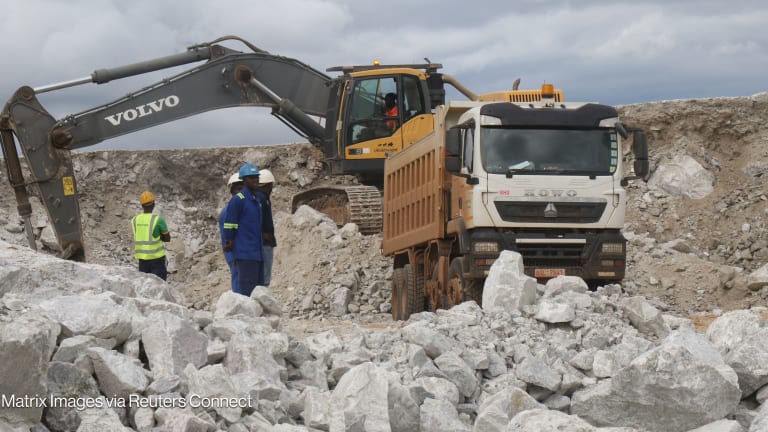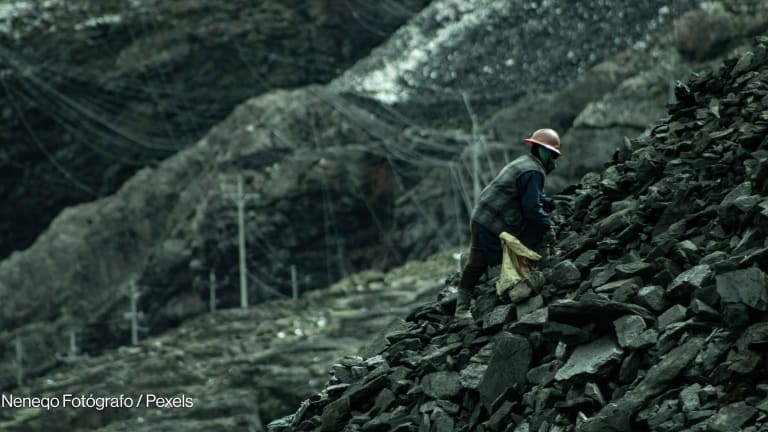
It is time to chart a new course for our port cities. For more than 200 years, fossil fuels have been at the heart of the global shipping industry, from coal in the 19th century to oil in the 20th. The 21st century must be a time of change. Rapid technological advances and the urgent need to address the climate crisis have created a generational opportunity: By transforming into clean energy hubs, port cities can unlock billions in investment, create new green jobs, and deliver cleaner air.
The world’s desire for trade shows no signs of abating, and with 80% of traded goods transported by sea, the shipping industry will continue to grow. The worldwide fleet reached a record size in 2024, and shipping is currently on track to increase its share of global carbon dioxide emissions to 17% by 2050.
Future-proofing ports
The transformation underway — as set out in a new report from C40 Cities and global built environment consultancy Arup — presents a strategic lever for cities and industry to enhance urban prosperity and resilience.
By leveraging three key investment opportunities, ports have the chance to become engines of 21st-century green growth. Fortunately, this work is already underway in ports across continents:
1. Sustainable fuel hubs
Ports can become global leaders in the production and export of cleaner fuels, such as green ammonia and green methanol. This isn’t just about a healthier planet; it’s about creating entirely new industries and jobs.
Durban, home to South Africa’s busiest container port, is part of a wider Hydrogen Valley opportunity across the country, which could create thousands of jobs, de-risk investments in hydrogen fuel cells, and position South Africa as a key energy exporter internationally.
On the other side of the Atlantic, Unigel’s Camaçari project is Brazil’s first large-scale green hydrogen and ammonia facility. Following an initial $120 million injection, the facility is set to reel in $1.5 billion in private finance, scaling production to 100,000 metric tons of green hydrogen by 2027. Investments of this scale could create significant numbers of jobs in e-fuel production, renewable energy generation, and their supply chains.

2. Electrification hubs
By electrifying port operations, from ships at berth to cranes and trucks, cities can dramatically improve public health — reducing dangerous particulate emissions, lowering noise pollution, and increasing the quality of life for port communities.
The Port of Los Angeles and Port of Long Beach have already raised over $115 million through a fee placed on the most polluting trucks to facilitate the shift to cleaner alternatives, with funds dedicated to supporting this transition. Studies in Seattle and New York show that full electrification of harbor operations could slash fine particulate matter levels by up to 75% and 69% respectively. This is about delivering a better quality of life and a healthier future for communities that have historically borne the brunt of pollution.
3. Offshore wind hubs
Ports could also serve as vital manufacturing and installation hubs for wind turbines. This enables deployment of large-scale renewables, creates new economic opportunities, and delivers thousands of skilled green jobs in communities that need them most.
The Port of Pecém in the Brazilian state of Ceará is home to two wind blade factories and is now exporting wind components globally, while the Empire Wind 1 development in New York City is set to power 500,000 homes, supported by the South Brooklyn Marine Terminal. This is about turning once underused land into productive, clean energy assets that power our cities.
Prosperous ports, empowered people, protected planet
All the examples above — and the many more being developed around the world — have one thing in common: They benefit both people and the planet. For our future energy transition to be successful, it must work for everyone. In port cities, a rising tide must lift all boats.
This is only possible by investing in workforce development — providing training and upskilling opportunities that empower workers to transition from legacy industries to the clean economy. It means involving trade unions, academic institutions, and national governments, avoiding silos, and ensuring an inclusive transition for all.
The path ahead is clear. Investing in ports as clean energy hubs isn’t just a choice, it’s a necessity. It is the most direct way to prove that a thriving economy and a healthy environment are not mutually exclusive. In fact, they are profoundly and intimately intertwined. By embracing this crucial opportunity, port cities will drive a just transition that benefits people, the planet, and the global economy for generations to come.
The report “Ports as Clean Energy Hubs” is available for download on the C40 Knowledge Hub and the Arup website.









